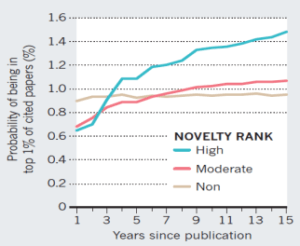Together with Brigitte Ecker from WPZ Research, senior researcher Christian Reiner published a policy brief on the topic of basic research systems and how the current incentive system distorts research activities in an unfavourable way from a societal point of view. A summary of the policy brief was published on APA Science. In addition, Christian Reiner and Brigitte Ecker wrote an article based on the policy brief published in “Austria Innovativ” (1/2019), a magazine devoted to research and innovation activities in Austria.
Basic research is the foundation of societal progress. Since the era of Enlightenment, scientists around the world have contributed to the accumulation of a tremendous body of knowledge, which underpins our current level of wealth and wellbeing. Global challenges, such as climate change or ageing, necessitate even more knowledge production in order to overcome these severe problems.
Yet, developments in the past two decades have provided researchers with incentives that may not be optimal for achieving societal progress. The governance of basic research motivates researchers to publish as many articles as possible in as prestigious journals as possible. If they want to advance their career, they need to attract as much third-party funding as possible. The result is a very intense competition between researchers for publication in international journals and funding.
Academic researchers respond to this situation by adjusting their research questions and methods in order to maximize their chances of getting published or receiving funding. Articles are written about fancy but maybe irrelevant topics, and research projects are much more conservative than they should be given the aim to come up with radical new solutions to our global problems.
To find out more about research activities at LBS please visit our Research section or contact us via [email protected].

Source: Stephan, Veugelers und Wang (2017)


Recent Comments